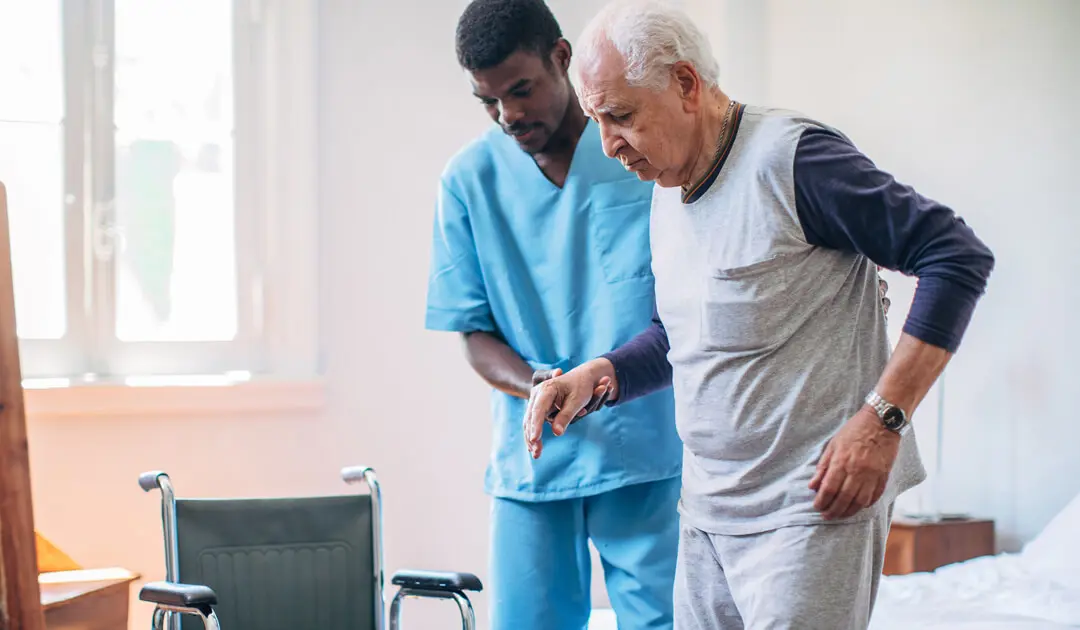Provision Living - Summit at Park Hills 1

DA has been a long time resident in our facility. She recently moved from the AL unit into our memory care unit. DA has always been known as the “walker” of the community. Every day, she would take 4-5 long walks up and down the street. Through conversations with DA and her family, we learned that walking had always been a part of DA’s life. It was a comforting routine to her. It became her coping mechanism through hard times and allowed her to feel a sense of independence. Several months before DA moved into Samara, she had multiple UTIs and pneumonia resulting in several hospital stays and a very short SNF stay.
We noticed a decline in her cognitive abilities and difficulty fully recovering with each infection and hospitalization. We also saw an increase in physical deficits, affecting her ability to take the long walks she enjoyed. The family agreed that it was time to move her into Samara to give her the support she
needed. DA had some difficulty acclimating to her new environment. She had many moments of clarity where she knew she was living in a secured environment. She perceived this as a loss of independence and grieved this loss. She also had moments of increased confusion and agitation. Her cognitive abilities fluctuated between an ACL high 3 and low 4. We also saw fluctuations in her physical abilities. Even through the physical ups and downs, DA still expressed a strong desire to walk. She began falling more frequently. At this time, she was being seen by home health therapists.
She was given a walker to use, which she frequently forgot. We saw her anxiety increasing over confusion with how to use the walker or being reminded to use the walker. The therapists working with her did not spend adequate time training her and also did not understand the limitations of new learning associated with dementia. The resident care aides and nurses were always nervous about her falling and would force her to sit in a wheelchair, not allowing her to walk at all. DA was becoming more depressed and tearful with these changes and we began to worry that we were not providing her with the best care possible. We knew changes needed to be made quickly.
Hospice was consulted to provide extra support for DA’s care. Home health discharged DA and she was picked up for therapy by Legacy. We were all noticing continued major fluctuations in her physical and cognitive abilities. The Samara nursing and therapy teams worked with DA’s hospice team to determine what the cause for these fluctuations was and how to best manage DA’s care. She was soon diagnosed with Lewy Body dementia. We discussed the implications of this diagnosis with DA’s family. They felt like DA associated quality of life with being allowed to walk. They knew that she was more likely to have falls, especially on bad days.
They accepted this risk and asked that we allowed her to walk as long as she was able and expressed a desire. Nursing often likes to fight therapy on allowing someone to walk vs. attempting to restrain them via wheelchairs/cushions. Having DA’s family feel the same way we did helped us win this battle for DA. Through repeated staff education, frequent staff meetings, and therapy involvement, we were able to preserve DA’s ability to walk and improve her quality of life immensely. Staff members were instructed to only use the wheelchair if DA was unable to bear weight and consented to using the wheelchair. They were also told to stop reminding DA that she forgot her walker. Instead, DA was presented with her walker when she was not using it.
Staff members were encouraged to supervise DA when she was walking. She enjoyed the company and it provided her with supervision for safety. Once these changes were implemented, we saw positive changes in DA. She began participating in activities again and initiating interactions with other residents. Her po intake increased and her lethargy decreased. We started seeing more “good” days instead of “bad” days. Her family and facility staff were amazed at the difference they were seeing with her overall happiness. DA continues to be a struggle for some staff members due to her diagnosis. She still has falls, which are not ideal. She also still has moments when her depression and anxiety are increased.
However, we strongly feel like we were able to make positive changes in her life by moving her into Samara. When resident care aides and nursing are able to see the positive effects of advocating for someone’s physical abilities, we view that as a big success for our facility and for our residents. We are so glad that we have been able to give DA what means the most to her, her walks.
Schedule a Consultation
Learn how CPI’s training programs can benefit your organization.
Let's Connect